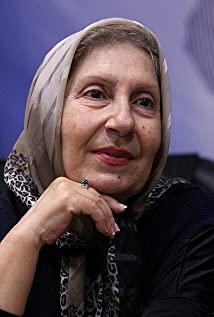The film begins with a conflict. As a wife, Westminster wanted to emigrate with his daughter, but Nader could not leave his elderly father with Alzheimer's disease to immigrate with his wife. So the wife filed for divorce, although not allowed by the judge, but in fact the husband and wife have become strangers. It should be mentioned here that the film does not directly address the reasons why Westminster wants to emigrate, but the aging father seems to be a metaphor. It means that the country is actually terminally ill and dying. Some people choose to leave, but some people can't leave because of their feelings, and the contradiction begins. The plot also began to extend along the ordinary life.
With his wife gone, Nader had to hire someone else to take care of his father. As a result, a series of unhappiness, the pressure of his wife's departure, and the worry about his father, including his daughter's education, made Nader a little anxious. Therefore, one of the most intense conflicts in the film was induced, the miscarriage of the maid. The maid and her husband are different from the social class Nader and Westminster are in. They are at the bottom of the society and have no capital to play games. When faced with Nader who is unwilling to give a raise anyway, they The only choice is to accept the status quo helplessly. The poorest people seem to have stronger beliefs, so it is not difficult to understand that the maid still struggled to call the church for advice when she needed to take care of the elderly. people, but the pressure of reality and religion make their lives very difficult, and reality and religion do not give them reality benefits because of their goodness.
Something unpleasant finally happened. By the end of the film, the whole thing is a downright absurd drama. That is to say, everything is accidental. Looking across the entire film, who is guilty, legally speaking, it seems that no one is guilty, but morally speaking, it seems that more than one person is guilty. It can be seen from the scene of the maid couple and Nader confronting the court with Bo, the pressure of reality has brought the hostility in everyone's heart to the extreme, and due to the good intentions in their hearts, these people will make repentance and forgiveness from time to time. behavior. For example, the husband of the maid actually just wanted to seek justice, and this justice was amplified by his own ill-will, so I personally felt that he wanted to sentence Nader to death, so as to unravel his heart. hate. Facing the fact of miscarriage, the maid who believed in the teachings, on the one hand, regretted it, on the other hand, had hatred, on the other hand, she was suffering from lying and concealing the truth. The inner conflict of the characters was fully realized by her. embodied. Facing the status quo, Westminster chose the most realistic solution. As an elite class, she solved the problem in the most realistic and win-win way in a few words. As for Nader, he always only abides by his own principles and does not want to obtain peace by means of compromise. The characteristics and personalities of the characters are shown one by one as the story progresses in the film.
In addition to the contradictions between various characters and different groups of people, another meaning that this film wants to express may lie in the irreconcilability of these contradictions. That is to say, after an event occurs, due to the different positions and viewpoints of everyone, the event cannot meet everyone's requirements in the end, so someone must make sacrifices, and someone must make concessions. In this film, it is actually the maid couple who make concessions, and at the same time they are not inclined to such a solution per se, even in the face of reality, such a solution is largely contrary to them own beliefs and moral values. Therefore, the most painful part of the film is precisely these two supporting roles. As for Nader and Westminster, my personal feeling is that Westminster made concessions, but she also had reservations. In the matter of divorce, she seemed to be disheartened and disliked Nader's various attitudes. The reaction felt a sense of betrayal. Although Nader is not a bad person in the film, the fact that two people get along involves two families and their own ideas. One of the most basic questions: is it to sacrifice the interests of the family in order to uphold one's own beliefs, or to compromise and seek the safety of the family. This is a dilemma for many men. In a male-dominated society, men want to take full control of the dominance, so they act like they don't care, but in the end they can't settle everything, and they still need to turn to others. Perhaps from this point of view, the desire for power and money are the desires that men must have. Of course, this has nothing to do with the theme of this film, but only when in a certain position, the corresponding dominance and the subjective initiative to solve things should be compared. much larger than ordinary people.
The film took the name Farewell. Then use a story to tell the irreconcilable differences that exist in society. At the end of the film, Nader and Simin walked out of the courtroom, leaving their daughter to decide whether to choose father or mother. Will there be a way out if everyone doesn't back down and everyone refuses to compromise? What I'm personally curious about is how Nader and Simin will face their lives in the future, will they change? And how their daughter will face the coming adult world. I believe that all these occurrences are definitely not individual cases. Perhaps we can find the answer from the status quo of society.
View more about A Separation reviews











